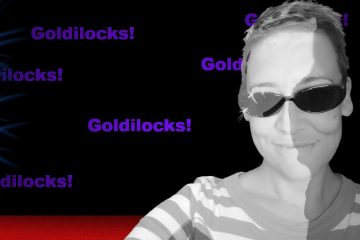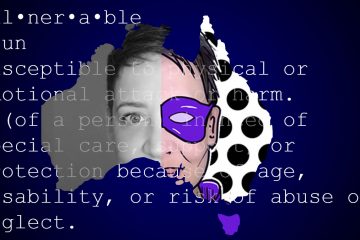Every superhero often finds their superpowers, in some ways, work against them. So, I’m just going to come right out and say it, at times epilepsy really sucks.
There, it’s done. But it’s most definitely not over. If it was, I’ve just written the world’s shortest blog post (well, it’s probably more of a tweet)?! So, no. It’s most definitely not over. And that’s the whole challenge really isn’t it? For those with (and affected by) epilepsy, that’s absolutely, 100% the issue. Whether you’ve just been diagnosed or been seizure free for years, it’s never over. It’s a constant presence; like the sky, epilepsy’s always looming over us.
Although, there’s stacks we can do to make this erratic, frustrating and sometimes downright infuriating condition deal-able-with. But even that’s a process. The very nature of epilepsy throws unpredictable hurdles across our paths causing our ‘time-since-last-seizure-clocks’ to reset. But management is possible.
I’ve spent much of the 30-years I’ve had epilepsy incredibly angry at the fact it’s me with the diagnosis. Eventually, logical-rational-doing-okay Goldilocks ponders on this and moves onto the thought, ‘I’m glad it’s me and not someone I care about’. Then I’ll have a seizure, bang my head, or break something precious and angry-why’s-this-happening-to-me Goldilocks appears. It’s a perpetual cycle; I’m getting better at picking myself up and brushing myself off. Every day it gets easier to accept I have epilepsy.
I didn’t find a golden ticket, or a magic secret, I found Epilepsy Goldilocks.
Epilepsy Goldilocks is the woman sitting where I was sitting from the moment a seizure starts to the moment it ends. It’s Epilepsy Goldilocks who, as a seizure starts, makes a guttural noise like (really terrible) Mongolian throat singing. It’s Epilepsy Goldilocks who during a seizure picks at her clothes, fiddles with anything within reach, raises her eyebrows, and smacks her lips. She occasionally wets herself, though generally she saves that little gem for the more cringeworthy locations. Read: at the office; on a train; or in a crowded café surrounded by strangers.
Epilepsy Goldilocks can hold entire, sometimes even comprehensive conversations but she’ll never own up to having a seizure, never mind having epilepsy. When the seizure does end, she vanishes, and I’m left to explain the reason it happens. I’m the one who must clean up the blood, debris, or broken crockery. I’m the one who has the diagnosis of epilepsy with focal impaired awareness seizures. Not everyone in my life gets it, one person even described it as unusual, unhealthy and undesirable. I understand this. I appreciate it must seem like I’ve created an alter-ego to apportion blame and remain in denial.
Except of course, I haven’t.
I’ve acknowledged the part of my personality who does her thing on autopilot while not-so-patiently-waiting for me to come back and take the controls. Doing this has enabled me to accept a condition which was crippling, crumbling and crushing my will to live. As far as I’m concerned Epilepsy Goldilocks’ existence is about as far from denial as I can be.
It’s an acceptance of the fact I have a condition and occasionally lose control. I’ve taken epilepsy by the scruff of the neck and said ‘we’re in this together, b*tch. Go ahead, you can knock me down, but I’ll always get back up. Always.’ Epilepsy Goldilocks offers the ideal outlet for me to scream at, shout at, get angry at, vent at, cry about, and criticise epilepsy; I stay separated.
Unlike Peter Parker, who the morning after being bitten by a radioactive spider woke up with his arachnid-esque super-powers, Epilepsy Goldilocks took a little longer to make me stronger. The notion became rooted when I first watched film-footage of one of my seizures. Interestingly, it wasn’t just the first time I’d seen one of my seizures but the first time I’d seen any seizure. As I watched I felt detached from the woman on screen. She was wearing the clothes I was wearing but it wasn’t me; I don’t behave like she behaves. I understood it was me but couldn’t get my head around the fact it was me.
It wasn’t instant. I didn’t watch that film and think ‘that’s not me, I need to create an alter-ego’. I watched that film and cried, never had I ever felt so vulnerable, exposed, weak and helpless. Time passed and my life changed enormously. Stress, seizures and side-effect issues meant I was signed off work by my doc in February 2017 and I spiralled downwards.
I didn’t realise at the time, but I was at the beginning of what was going to become my darkest time. It culminated in a series of dissociative seizures, my first generalised seizure in over 8 years and a frightening period of post-ictal psychosis. When you’re wrapped in depression it’s incredibly difficult to see; you’re hindered by your own melancholy. It’s not that you want to be sad, it’s that sadness is making you indifferent to your emotions. You don’t feel anything.
I became incredibly anxious, I thought I was losing my mind. This was agonising; I felt epilepsy was stripping away my basic faculties as well as my health. Finally, at this point I saw I was depressed. Family and friends can suggest you need help but until you admit that to yourself, it won’t register. I started by accepting the things I can’t change, changing the things I can and recognising the difference. I had to (not needed to, certainly not wanted to but had to) accept epilepsy.
I made it about accepting Epilepsy Goldilocks.
For the longest time, I had allowed epilepsy to consume me. I was encased in misery and couldn’t see a life that existed outside of the condition. I needed to disconnect my thinking from what was happening to even have a chance at understanding what was happening. By separating the person I become during a seizure from who I am the rest of the time, I can retain (if only just a fragment of) control.
I see this separation of myself from the person I am during a seizure to the person I am writing this, as a reminder to me that I’m so much more than Goldilocks who has epilepsy. As is every other person who has epilepsy; we are not our conditions. By personifying my condition, I can stand outside of it. When it threatens to gain control of me, I know I am strong, I can say ‘I can handle this’.
Over the years Epilepsy Goldilocks has transformed; she’s changed an incredible amount, many times. Emotionally, it’s difficult to get a handle on something that’s unstable. This constant flux is part of what’s made my seizures resistant to treatment. Just as I start to think ‘I’m getting a grip on Epilepsy Goldilocks’, she throws a curve ball.
I started working on making friends with Epilepsy Goldilocks. I had to stop seeing her as Lex Luthor and more as Robin to my Batman. It wasn’t easy, she’s unpredictable, sporadic and she doesn’t mess around when it comes to injuries. I’m always reminding myself no matter what’s happened, no matter how angry I am, I can’t change her. She’s not going anywhere; she’s a stubborn minx (let’s face it she’s me!). All I can do is try and reduce the chances of her surfacing and manage her appearances when she does.
Staying on top of stuff like a good night’s sleep, eating regular and healthy meals, exercise (okay, some exercise, ssshhh) won’t prevent her invasions but it may make them less likely. This kind of management isn’t easy; it’s pretty much a full-time job (without any holidays, or weekends off, obvs). But going to bed earlier, eating better, exercising (however much it hurts), taking my meds on time, are factors I can control. More importantly, it’s the stuff ol’ Epilepsy Goldilocks can’t get her mitts on. Although, we are in a relentless battle over ‘sleep’, she thinks it’s hers, but I’ll be triumphant. I’ve got this far.
Here the Goldilocks Method becomes invaluable; too little sleep can be as detrimental to me as too much, I need to have just the right amount. Similarly, with exercise: doing too much is as damaging as doing too little. And there’s a wonderful irony in managing my life with a method which bears her name.
So, with regards to my initial statement, yes, wholeheartedly and furiously waving an enormous purple banner, epilepsy truly sucks. As an epilepsy veteran of 30 years, I’ll never be okay with waking up feeling more tired than when I went to bed. I won’t ever get used to ‘coming to’ after a seizure and not having the slightest clue what’s happened.
But the way I see it, epilepsy is an invisible, intangible diagnosis; Epilepsy Goldilocks is the chick who moves my clothes around when I’ve had a seizure. It’s Epilepsy Goldilocks who wets herself, causes havoc and breaks stuff; I’m the one who’s left to clean up.
And I’m a superhero.
Copyright © Jo Mackenzie 2020



0 Comments